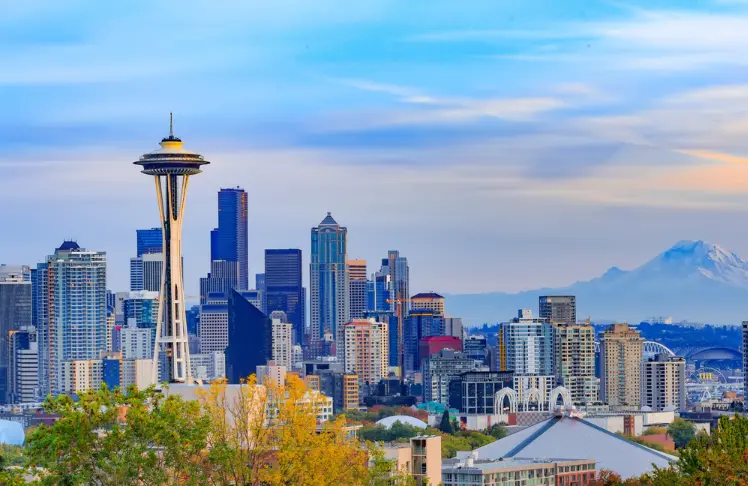
The City of Seattle’s Office of Sustainability and Environment (OSE) has announced that $1.2 million in Environmental Justice (EJ) Fund grants will be awarded to support new projects and ongoing initiatives focused on climate resilience, environmental education, and equity-centered initiatives. The funding will support hands-on youth programs, outdoor activities for Black, Indigenous, People of Color (BIPOC), and low-income residents, and community-led solutions to address environmental injustices.
“Seattle’s frontline communities are disproportionately experiencing the impacts of the climate crisis like worsening floods, air pollution, and dangerous heat waves,” said Mayor Bruce Harrell. “Through our unique Environmental Justice Fund, Seattle continues to be a leader in advancing climate justice and building community resilience by prioritizing investments to support those most overburdened by the climate crisis. I’m grateful to the many community organizations who have partnered with the City and helped grow Seattle’s EJ Fund with their innovative, community-centered solutions to help prepare their neighbors for climate change.”
The Environmental Justice Fund, established in 2018 as part of the City’s Equity & Environment Agenda, invests in community-led projects that help protect and strengthen Seattle neighborhoods most affected by climate change, extreme weather, and environmental inequities. These include communities of color, immigrants, refugees, youth, elders, and low-income residents.
“Urban heat islands and elevated air pollution levels are pressing concerns in the Central Area of Seattle, leading to increased health risks for vulnerable populations,” said Mdigo Kisimbo, Executive Director of Outreach & Transform Lives. “By receiving funds through the EJ Fund, we can utilize digital storytelling to foster a deeper understanding of the environmental challenges that our BIPOC seniors and African immigrant populations face while supporting advocacy for climate resilience and justice.”
Since its launch, the Environmental Justice Fund has received 250 applications and awarded more than $3.8 million to 55 community-based organizations. These projects are led by, or directly partner with, communities disproportionately impacted by environmental injustices.
“Seattle’s Environmental Justice Fund recognizes that communities on the front lines of the climate crisis have their own unique solutions to advance climate justice,” said Ximena Fonseca Morales, OSE’s Environmental Justice Fund Program Manager. “Local organizations embedded in communities deeply understand the needs of their neighbors. OSE is honored to invest in these groups through the EJ Fund to carry out the environmental solutions best suited for their communities—from climate preparedness for low-income residents to workshops for BIPOC youth teaching about clean energy.”
Community feedback was incorporated into the 2024 grant cycle, leading to changes such as a rolling application process to better accommodate small organizations, particularly Tribes, Indigenous-led groups, and community-based initiatives. OSE also provided continued support for projects first funded in 2022 and 2023, allowing them to expand their programs.
“With the help of the EJ Fund in 2023, The Common Acre has been able to focus on building spaces where BIPOC folks can gather, celebrate, and reconnect with the land,” said Talia London, Executive Director of The Common Acre. “By receiving additional funding through the EJ Fund, we can continue to foster cultural preservation for people of color, restore Camas prairie habitats, and build relationships across historically underserved populations in South Seattle.”
A portion of this year’s funding will also support climate preparedness and workforce development for youth, with several grantees playing a role in shaping Seattle’s upcoming Citywide Resilience Hub Plan through hands-on community engagement.
OSE will release a five-year impact report later this year and plans to open another Environmental Justice Fund grant cycle in the coming months. More information is available on OSE’s website, where previous grantee stories are highlighted in the EJ Fund blog series.
The 2024 EJ Fund grantees and their funded projects, include:
· The Backpack Academy – Hands-on education for young adults (ages 16-24) about the environmental impact of combustion engines vs. electric vehicles.
· Beavers Northwest – Nature outreach events in South Seattle, engaging immigrant and refugee communities in climate change education.
· Black Farmers Collective – Community engagement at Yesler Terrace, including multilingual outreach and stakeholder discussions.
· Community Land Conservancy – A Community Review Committee guiding environmental organizations on equity-focused policies.
· Global Wisdom Collective – Khmer Indigenous Knowledge Preservation Strategy and digital archive development.
· King County International Airport Community Coalition – Community education on air pollution, lead exposure, and health impacts.
· Montañistas de Washington – Outdoor experiences for Spanish-speaking migrant families and youth.
· Naa káani Native Program – Indigenous-focused environmental initiatives, internships, and community events.
· Outreach & Transform Lives – Digital storytelling to document environmental challenges faced by BIPOC seniors and African immigrants.
· Serve Ethiopians WA – Environmental justice outreach, tree planting, and education workshops.
· Shared Spaces Foundation – Paddle sports recreation program in the Duwamish River Valley addressing environmental racism.
· It Takes a Village – A seven-day Kwanzaa celebration integrating sustainability and environmental education.



